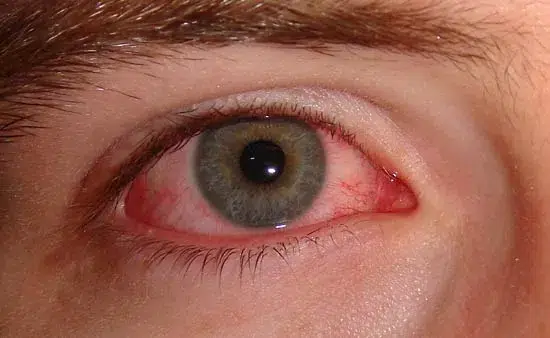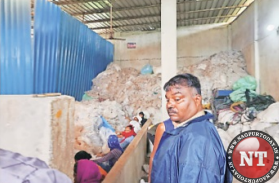Nagpur: The Second Capital of Maharashtra, Nagpur, is experiencing a sudden increase in cases of conjunctivitis, also known as Pink Eye. As the rainy season sets in, specific diseases like conjunctivitis tend to rise, causing discomfort and inconvenience to those affected. However, the situation in Nagpur has been exacerbated by a shortage of eye drops required for the prevention and treatment of the disease, especially in government hospitals operated by the Nagpur Municipal Corporation (NMC).
Nagpur Municipal Corporation (NMC) operates two major Urban Primary Health Centres, namely Indira Gandhi Rugnalaya in Gandhi Nagar and the Hospital at Sadar. These hospitals serve as crucial healthcare facilities for the needy and economically disadvantaged who cannot afford private treatment. Due to the sudden surge in conjunctivitis cases, more people are visiting NMC dispensaries seeking medical attention.
However, it has come to light that NMC hospitals do not have an Ophthalmology Department and have not stocked eye drops needed for the treatment of conjunctivitis. Consequently, patients visiting these hospitals are unable to receive the necessary eye drops and antibiotics, leaving them without proper care.
Dr Narendra Bahirwar, the Health Officer at NMC, explained that since they lack an Ophthalmology Department, they do not keep eye drops in stock at their hospitals. Instead, patients are directed to seek treatment at specialized departments in government medical colleges, such as Government Medical College and Hospital (GMCH) and Indira Gandhi Government Medical College and Hospital (IGGMCH). The rationale behind this practice is to ensure that patients receive appropriate medical advice and treatment from trained medical professionals.
Dr A H Madan, from the Department of Ophthalmology at GMCH, and Dr Gopal Arora, a noted Ophthalmologist, have both acknowledged the surge in conjunctivitis cases. According to them, more than 60% of patients visiting the Outpatient Department (OPD) are currently suffering from conjunctivitis. Although conjunctivitis is not life-threatening, the involvement of a delicate organ like the eye raises concerns. The typical duration of this eye condition is 5 to 7 days, varying depending on individual patient conditions.
Dr Palak Kusumgar-Shah has cautioned the public about the rising conjunctivitis cases and the need to take preventive measures to avoid its spread. Children who contract conjunctivitis should be kept away from school for at least 5 days to prevent the disease from spreading. Conjunctivitis can spread through person-to-person contact and by touching infected surfaces, leading to eye-to-eye transmission.
Dr Palak Kusumgar-Shah also explained that conjunctivitis can be of viral or bacterial origin and may have allergy connections. It is essential for patients to avoid self-medication and seek proper medical advice for effective treatment. While conjunctivitis does not typically lead to blindness, neglecting proper care and hygiene during its course may cause blurring of vision.
The surge in conjunctivitis cases in Nagpur, Maharashtra, is a matter of concern for the public health authorities. The shortage of eye drops in NMC hospitals is adding to the challenges faced by patients seeking treatment at these facilities. It is crucial for the Department of Public Health to ensure adequate stock of medicines and materials, especially during the rainy season when such seasonal diseases are more prevalent. Public awareness campaigns on preventive measures and proper hygiene practices are necessary to contain the spread of conjunctivitis in the region.

















